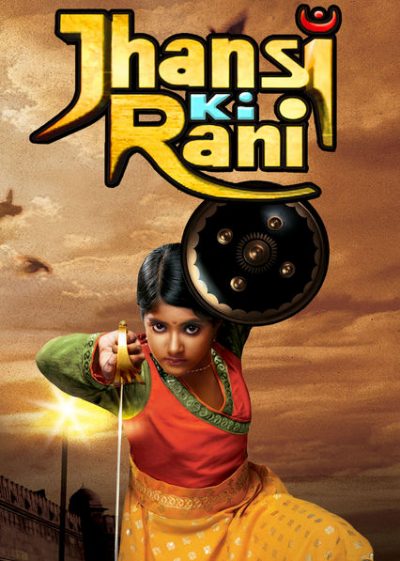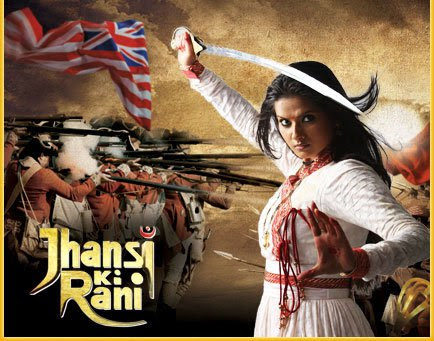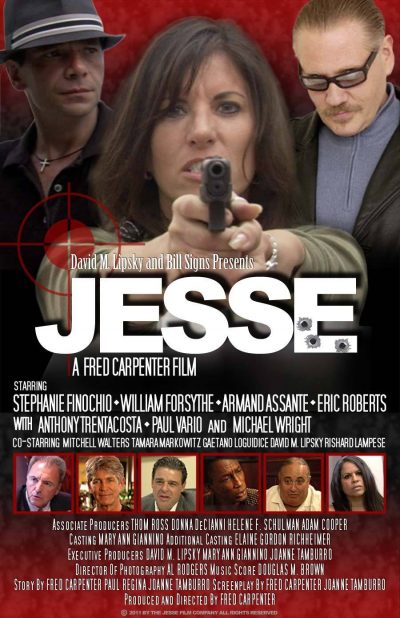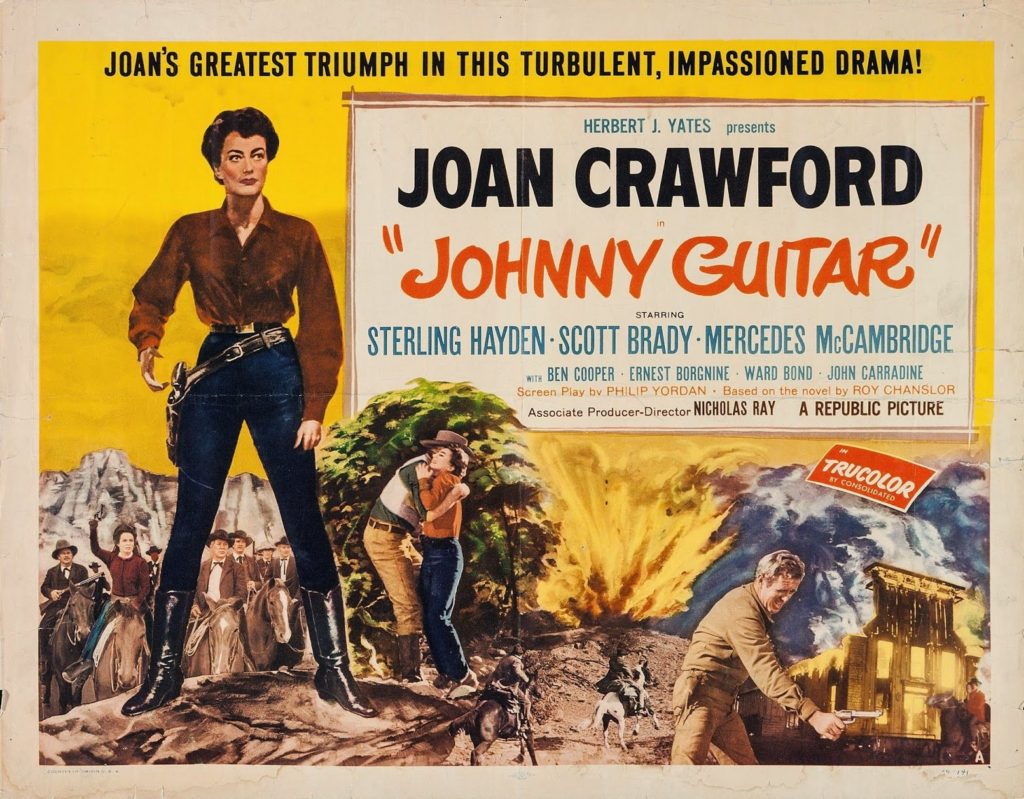★★★½
“I can only apologize.”
 Not for the show, I should stress. But as a Brit… Wow, were were really such utter bastards to the Indians when the country was a colony? I was under the impression it was all tea and cricket. But the British, as depicted here, appear largely to be working entirely for the East Indian company, treating the local population with, at best, disdain, and often brutality. All the while, seeking to manipulate local politics (with, it must be said, the help of some Indians) to their own advantage. After 70 episodes of this, such is the guilt, I can barely enjoy my chicken tikka masala without giving it reparations.
Not for the show, I should stress. But as a Brit… Wow, were were really such utter bastards to the Indians when the country was a colony? I was under the impression it was all tea and cricket. But the British, as depicted here, appear largely to be working entirely for the East Indian company, treating the local population with, at best, disdain, and often brutality. All the while, seeking to manipulate local politics (with, it must be said, the help of some Indians) to their own advantage. After 70 episodes of this, such is the guilt, I can barely enjoy my chicken tikka masala without giving it reparations.
I say 70 episodes, but the entire series is considerably longer. Wikipedia lists it as 408, but those are apparently 25-minute shows. Netflix seems to have doubled it up (bringing its length into line with the more traditional Hispanic telenovelas which I’ve previously reviewed). Yet even allowing for that, to this point they only seem to have about 30% of the show. They also shortened the title from its full name, Ek Veer Stree Ki Kahaani… Jhansi Ki Rani, which translates as Story of a Brave Woman… The Queen of Jhansi.
Simply based on the level of intrigue here, this feels like an Indian version of Game of Thrones. Albeit without the incest. Or the dragons. Or the budget. And is based on a real character, Lakshmibai. But it’s quite easy also to draw a line between Arya Stark and the teenage heroine here, Manikarnika (Gupta) a.k.a. Manu, neither caring one bit for ‘traditional’ behaviour. Manu, in particular, objects to the occupying British forces and their disrespectful treatment of the native population. So she crafts a secret identity, Kranti Guru, and uses this to fight back against the Brits, even (gasp!) desecrating the Union Jack. She’s helped by her mentor, Tatya Tope, who occasionally dons the mask as well, when necessary.
However, a literally stellar horoscope leads to Manu being betrothed to the Maharaja of Jhansi, Gangadhar Rao (Dharmadhikari). And this is my biggest issue. Cultural differences be damned, there is no way in which a prepubescent girl marrying a middle-aged man can seem appropriate, or other than incredibly creepy. Manu gets her first period in one of the final episodes, and the reaction of everyone can be summarised as, “Good, now you can give the king a heir.” [The reality was slightly less creepy: Lakshmibai did, indeed, marry the king at age 13. However, they didn’t have a son until she was in her twenties]
 The British – already unhappy with Manu’s rebellious outbursts – are far from happy at the prospect of her marrying Gangadhar and continuing the line. Even before she arrives at the palace, there are backroom conspiracies involving some of his relatives (not least his own mother), who ally themselves with the colonialists for their mutual benefit. These schemes go up to and include multiple assassination plots against the king, and indeed, his bride-to-be. Time for Kranti Guru to come out again, particularly to face off against gold-toothed British psychopath Marshall (Verma). His relentless pursuit, without regard for who gets hurt, earns him Manu’s undying enmity. [Weirdly, he’s played by an Indian actor in “white face”, as are some – but not all – of the other English officers, some of whom are dubbed.]
The British – already unhappy with Manu’s rebellious outbursts – are far from happy at the prospect of her marrying Gangadhar and continuing the line. Even before she arrives at the palace, there are backroom conspiracies involving some of his relatives (not least his own mother), who ally themselves with the colonialists for their mutual benefit. These schemes go up to and include multiple assassination plots against the king, and indeed, his bride-to-be. Time for Kranti Guru to come out again, particularly to face off against gold-toothed British psychopath Marshall (Verma). His relentless pursuit, without regard for who gets hurt, earns him Manu’s undying enmity. [Weirdly, he’s played by an Indian actor in “white face”, as are some – but not all – of the other English officers, some of whom are dubbed.]
To be honest, Manu’s action scenes are a bit crap, mostly consisting of her waving a sword around in severely choreographed battles. She’d last about two minutes against other teenage warrioresses, like Hanna or Hit-Girl. Still, she has a certain charm, not least for her razor-sharp intellect, which lets her argue with – and usually kick the mental ass of – religious scholars, politicians and the king. She also has an unshakeable faith that everyone is redeemable, and more than once, turns enemies into loyal allies. Most notable is dacoit (bandit) Samar Singh, initially hired to murder Manu. When the tables are turned, and she forgives him, he abandons his life of crime. That’s the level of devotion she inspires.
Run away, foreigner, run away!
This brave Manu riding the horse is Lakshmi Bai
Fire will rain on you, now you are doomed.
Look at the colourful India, India will defeat you.
She has come to claim your head, the Queen of Jhansi has come.
Run away foreigner, the Queen of Jhansi has come!
Despite its origins, there are no song-and-dance numbers, though the music still plays a significant, if repetitive part. The song quoted above shows up in every other episode, and the re-use of certain cues could be turned into a drinking game, e.g. take a shot every time that “sad trombone”-like arpeggio sting is heard. However, the most defining style element is the reaction shot. It seems nothing dramatic can happen without everyone present in the scene subsequently being ready for their close-up – sometimes multiple times. And considering how often such moments happen in the king’s court… it takes a while. This does lighten the intellectual burden required to keep up. Chris was usually present for only about one-third of the screen time each day, yet she was able to hang in there, with only minor explanations from me.
 For the great majority of the time, it’s light stuff, with Manu escaping every pitfall her enemies set for her. Then, the hammer drops: to extend the GoT comparison, it’s the Rani equivalent of the Red Wedding. Fewer bodies, to be sure – just one – yet the resulting emotional wallop was still brutal, sending me through multiple stages of grief during the subsequent fall-out. “No… Surely they haven’t… It’s got to be a dream sequence.” All told, it was easily the most impactful death in any of the telenovelas I’ve watched, regardless of their origin, and the repercussions ran on for multiple episodes. As do the reaction shots. So. Many. Reaction. Shots.
For the great majority of the time, it’s light stuff, with Manu escaping every pitfall her enemies set for her. Then, the hammer drops: to extend the GoT comparison, it’s the Rani equivalent of the Red Wedding. Fewer bodies, to be sure – just one – yet the resulting emotional wallop was still brutal, sending me through multiple stages of grief during the subsequent fall-out. “No… Surely they haven’t… It’s got to be a dream sequence.” All told, it was easily the most impactful death in any of the telenovelas I’ve watched, regardless of their origin, and the repercussions ran on for multiple episodes. As do the reaction shots. So. Many. Reaction. Shots.
I wonder if the 70-episode cutoff point was chosen by Netflix, being the point at which Manu “grows up”. It appears she is played by an older actress (right) in the latter stages of the series. As it stands, however, it’s an interesting approach to have a series apparently aimed at adults, with a 14-year-old character as the lead. While I can’t say it was wholly successful, it proved a remarkably easy watch, and I was genuinely sorry when I ran out of episodes.
Creative Director: Sujata Rao
Star: Ulka Gupta, Sameer Dharmadhikari, Vikas Verma, Ashnoor Kaur
 Certainly the kind of action film for which you need to suspend your disbelief. In this case, the closest parallel is, as the tag-line above implies, the Jason Statham vehicle, Crank. In it, Statham’s character was poisoned, and had to keep his adrenaline permanently up for the rest of the film. to avoid dying. Here, it’s almost the reverse. Beckinsale’s character, Lindy, was born with a rare condition, “intermittent explosive disorder”. This is pretty much what it sounds like: uncontrollable aggressive outbursts, like a physical version of Tourette’s. This is a real thing. Not so real? Lindy is also “blessed” with high levels of cortisol, which make her faster and stronger than anyone else. Somewhere in the middle? Lindy controls her IED with electric shocks from a handheld device given to her by her therapist, Dr. Munchin (Tucci). All told, I’m tagging this as SF. #ChangeMyMind
Certainly the kind of action film for which you need to suspend your disbelief. In this case, the closest parallel is, as the tag-line above implies, the Jason Statham vehicle, Crank. In it, Statham’s character was poisoned, and had to keep his adrenaline permanently up for the rest of the film. to avoid dying. Here, it’s almost the reverse. Beckinsale’s character, Lindy, was born with a rare condition, “intermittent explosive disorder”. This is pretty much what it sounds like: uncontrollable aggressive outbursts, like a physical version of Tourette’s. This is a real thing. Not so real? Lindy is also “blessed” with high levels of cortisol, which make her faster and stronger than anyone else. Somewhere in the middle? Lindy controls her IED with electric shocks from a handheld device given to her by her therapist, Dr. Munchin (Tucci). All told, I’m tagging this as SF. #ChangeMyMind




 While ultimately hamstrung, not least by its limited resources – this cost a mere five thousand dollars – it does what low-budget films should generally tend to do. That is, go where their better-off siblings dare not tread. In this case, that’s the forbidden territory of religion. Two young, female missionaries, Amber (Durand) and Martha (Crosland) are going door-to-door, seeking souls they can save and bring into the body of their church – clearly Mormon, going by the reference to Salt Lake City among other things, though operating under a pseudonym here! While their attractive shape proves successful at getting them in the door, the residents who don’t live up to the ladies’ high moral standards are in for a shock. For the two kill non-believers, with Amber in particular, having a zero tolerance policy. And she considers herself “saved”, basically giving her a free pass to do anything necessary in the name of the Lord.
While ultimately hamstrung, not least by its limited resources – this cost a mere five thousand dollars – it does what low-budget films should generally tend to do. That is, go where their better-off siblings dare not tread. In this case, that’s the forbidden territory of religion. Two young, female missionaries, Amber (Durand) and Martha (Crosland) are going door-to-door, seeking souls they can save and bring into the body of their church – clearly Mormon, going by the reference to Salt Lake City among other things, though operating under a pseudonym here! While their attractive shape proves successful at getting them in the door, the residents who don’t live up to the ladies’ high moral standards are in for a shock. For the two kill non-believers, with Amber in particular, having a zero tolerance policy. And she considers herself “saved”, basically giving her a free pass to do anything necessary in the name of the Lord. Jesse (Finochio) is a Long Island cop on the edgeTM. Since losing custody of her kids, she has gone into a downward spiral of drinking, casual relationships and taking her anger out on any perps unfortunate enough to cross her path. She has driven her captain (Vario) to the edge of distraction, and is perpetually feuding with her mother and brother. The latter dies in a road accident – only his foot is found! – but when Jesse and Mom go to cash in his life insurance policy, they get a shock. The beneficiary has been changed to be Ralph Sirna (Trentacosta), a notorious local gangster. Suddenly, the accident seems rather less accidental, and nothing – not her boss nor Sirna’s “godfather”, Vince (Forsythe) – will be able to stop her.
Jesse (Finochio) is a Long Island cop on the edgeTM. Since losing custody of her kids, she has gone into a downward spiral of drinking, casual relationships and taking her anger out on any perps unfortunate enough to cross her path. She has driven her captain (Vario) to the edge of distraction, and is perpetually feuding with her mother and brother. The latter dies in a road accident – only his foot is found! – but when Jesse and Mom go to cash in his life insurance policy, they get a shock. The beneficiary has been changed to be Ralph Sirna (Trentacosta), a notorious local gangster. Suddenly, the accident seems rather less accidental, and nothing – not her boss nor Sirna’s “godfather”, Vince (Forsythe) – will be able to stop her.
 It’s about the year 1880, and Jessica Hartwell (Currie) is heading out West in a wagon with her preacher husband. They encounter the gang of Frank Brock (Frank); they repeatedly rape Jessica, before shooting her husband fatally, and leaving her for dead. She survives, returning to health with the help of prospector Rufe, who sports an unfortunate, obviously fake beard, yet also teaches the young woman how to shoot. For Jessi has vengeance on her mind, and to assist her in this path, she liberates three other women from the custody of Sheriff Clay (Lund). There’s outlaw Rachel (Jennifer Bishop); saloon girl Claire (Regina Carrol); and Indian Kana (the not-exactly Indian Stern), who had been a part of Frank’s gang until he abandoned her.
It’s about the year 1880, and Jessica Hartwell (Currie) is heading out West in a wagon with her preacher husband. They encounter the gang of Frank Brock (Frank); they repeatedly rape Jessica, before shooting her husband fatally, and leaving her for dead. She survives, returning to health with the help of prospector Rufe, who sports an unfortunate, obviously fake beard, yet also teaches the young woman how to shoot. For Jessi has vengeance on her mind, and to assist her in this path, she liberates three other women from the custody of Sheriff Clay (Lund). There’s outlaw Rachel (Jennifer Bishop); saloon girl Claire (Regina Carrol); and Indian Kana (the not-exactly Indian Stern), who had been a part of Frank’s gang until he abandoned her. Born as Maya, the heroine here adopted the name of “Jet” when she became part of a seriously black ops group, part of the Israeli intelligence service known as the Mossad. There, she and her colleagues had carried out thoroughly deniable operations against… well, supposedly Israel’s enemies, though it’s not as if she asks questions. The secrecy wasn’t limited to her work, as she carried on an unsanctioned relationship with David, the man in charge of the group. But eventually, it all became too much: with David’s assistance, Jet faked her own death on a mission and vanished off the grid, re-appearing as “Carla” in Trinidad, where she enjoyed a quiet life for several years. That came to a sudden end when assassins make an attempt to terminate her new identity. Her cover has clearly been blown. The questions are: what happened, who is responsible, and how can Maya a.k.a. Jet a.k.a. Carla restore the balance?
Born as Maya, the heroine here adopted the name of “Jet” when she became part of a seriously black ops group, part of the Israeli intelligence service known as the Mossad. There, she and her colleagues had carried out thoroughly deniable operations against… well, supposedly Israel’s enemies, though it’s not as if she asks questions. The secrecy wasn’t limited to her work, as she carried on an unsanctioned relationship with David, the man in charge of the group. But eventually, it all became too much: with David’s assistance, Jet faked her own death on a mission and vanished off the grid, re-appearing as “Carla” in Trinidad, where she enjoyed a quiet life for several years. That came to a sudden end when assassins make an attempt to terminate her new identity. Her cover has clearly been blown. The questions are: what happened, who is responsible, and how can Maya a.k.a. Jet a.k.a. Carla restore the balance? Not for the show, I should stress. But as a Brit… Wow, were were really such utter bastards to the Indians when the country was a colony? I was under the impression it was all tea and cricket. But the British, as depicted here, appear largely to be working entirely for the East Indian company, treating the local population with, at best, disdain, and often brutality. All the while, seeking to manipulate local politics (with, it must be said, the help of some Indians) to their own advantage. After 70 episodes of this, such is the guilt, I can barely enjoy my chicken tikka masala without giving it reparations.
Not for the show, I should stress. But as a Brit… Wow, were were really such utter bastards to the Indians when the country was a colony? I was under the impression it was all tea and cricket. But the British, as depicted here, appear largely to be working entirely for the East Indian company, treating the local population with, at best, disdain, and often brutality. All the while, seeking to manipulate local politics (with, it must be said, the help of some Indians) to their own advantage. After 70 episodes of this, such is the guilt, I can barely enjoy my chicken tikka masala without giving it reparations. The British – already unhappy with Manu’s rebellious outbursts – are far from happy at the prospect of her marrying Gangadhar and continuing the line. Even before she arrives at the palace, there are backroom conspiracies involving some of his relatives (not least his own mother), who ally themselves with the colonialists for their mutual benefit. These schemes go up to and include multiple assassination plots against the king, and indeed, his bride-to-be. Time for Kranti Guru to come out again, particularly to face off against gold-toothed British psychopath Marshall (Verma). His relentless pursuit, without regard for who gets hurt, earns him Manu’s undying enmity. [Weirdly, he’s played by an Indian actor in “white face”, as are some – but not all – of the other English officers, some of whom are dubbed.]
The British – already unhappy with Manu’s rebellious outbursts – are far from happy at the prospect of her marrying Gangadhar and continuing the line. Even before she arrives at the palace, there are backroom conspiracies involving some of his relatives (not least his own mother), who ally themselves with the colonialists for their mutual benefit. These schemes go up to and include multiple assassination plots against the king, and indeed, his bride-to-be. Time for Kranti Guru to come out again, particularly to face off against gold-toothed British psychopath Marshall (Verma). His relentless pursuit, without regard for who gets hurt, earns him Manu’s undying enmity. [Weirdly, he’s played by an Indian actor in “white face”, as are some – but not all – of the other English officers, some of whom are dubbed.] For the great majority of the time, it’s light stuff, with Manu escaping every pitfall her enemies set for her. Then, the hammer drops: to extend the GoT comparison, it’s the Rani equivalent of the Red Wedding. Fewer bodies, to be sure – just one – yet the resulting emotional wallop was still brutal, sending me through multiple stages of grief during the subsequent fall-out. “No… Surely they haven’t… It’s got to be a dream sequence.” All told, it was easily the most impactful death in any of the telenovelas I’ve watched, regardless of their origin, and the repercussions ran on for multiple episodes. As do the reaction shots. So. Many. Reaction. Shots.
For the great majority of the time, it’s light stuff, with Manu escaping every pitfall her enemies set for her. Then, the hammer drops: to extend the GoT comparison, it’s the Rani equivalent of the Red Wedding. Fewer bodies, to be sure – just one – yet the resulting emotional wallop was still brutal, sending me through multiple stages of grief during the subsequent fall-out. “No… Surely they haven’t… It’s got to be a dream sequence.” All told, it was easily the most impactful death in any of the telenovelas I’ve watched, regardless of their origin, and the repercussions ran on for multiple episodes. As do the reaction shots. So. Many. Reaction. Shots. This 1986 TV movie was the first film made about an FBI agent while they were still active. Gibson was the fifth black female agent in the bureau’s history: she broke new ground by being the first such assigned to the Fugitive Matters department in the Miami branch, and was also the first to reach a supervisory level within the FBI. That would, however, be well after the story told in this film. It covers how she came to join the FBI, and her first major undercover operation, taking down a gun-running ring operated by ex-NFL star, Adam Prentice (Lawson). However, Gibson starts to find the lines between real-life and undercover work blurring, and begins feeling genuine affection for her target. This doesn’t sit well with her partner, TC (Rollins). If it sounds all very by the numbers… It is.
This 1986 TV movie was the first film made about an FBI agent while they were still active. Gibson was the fifth black female agent in the bureau’s history: she broke new ground by being the first such assigned to the Fugitive Matters department in the Miami branch, and was also the first to reach a supervisory level within the FBI. That would, however, be well after the story told in this film. It covers how she came to join the FBI, and her first major undercover operation, taking down a gun-running ring operated by ex-NFL star, Adam Prentice (Lawson). However, Gibson starts to find the lines between real-life and undercover work blurring, and begins feeling genuine affection for her target. This doesn’t sit well with her partner, TC (Rollins). If it sounds all very by the numbers… It is. Despite the male-oriented title, there’s no doubt who the star is: Vienna (Crawford), a former saloon girl who has clawed her way up to owning her own place, on the outskirts of an Arizona mining town. She has inside knowledge of the route the railroad is going to take, and chose her location with that in mind. But there’s stiff local opposition, from those who don’t want the railroad, or who object to her allowing the Dancing Kid (Brady) and his gang, suspects in a stagecoach robbery, to frequent her establishment. Leading those with a dim view of Vienna, is Emma Small (McCambridge), whose brother was killed in the robbery.
Despite the male-oriented title, there’s no doubt who the star is: Vienna (Crawford), a former saloon girl who has clawed her way up to owning her own place, on the outskirts of an Arizona mining town. She has inside knowledge of the route the railroad is going to take, and chose her location with that in mind. But there’s stiff local opposition, from those who don’t want the railroad, or who object to her allowing the Dancing Kid (Brady) and his gang, suspects in a stagecoach robbery, to frequent her establishment. Leading those with a dim view of Vienna, is Emma Small (McCambridge), whose brother was killed in the robbery.
 A date appears to go badly wrong for Julia (Azlynn), when her companion (Sorbo) turns out to be a serial-killer who has been using Internet dating sites to find the young women he targets. However, it turns out the tables are eventually turned, for Julia and her sister Jessica (Willis) are every bit as monstrous, who have been luring in and killing men, as a result of the abuse they both suffered at the hands of their father. But Jessica is a bit fed up of taking a back seat to her big sis, and wanders across the street to kidnap a victim of her own (Moore). But Julia’s captive is not exactly prepared to give up his liberty without a fight.
A date appears to go badly wrong for Julia (Azlynn), when her companion (Sorbo) turns out to be a serial-killer who has been using Internet dating sites to find the young women he targets. However, it turns out the tables are eventually turned, for Julia and her sister Jessica (Willis) are every bit as monstrous, who have been luring in and killing men, as a result of the abuse they both suffered at the hands of their father. But Jessica is a bit fed up of taking a back seat to her big sis, and wanders across the street to kidnap a victim of her own (Moore). But Julia’s captive is not exactly prepared to give up his liberty without a fight.